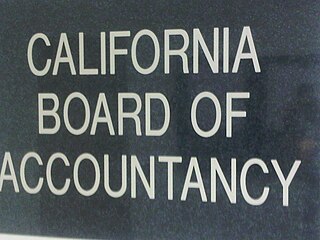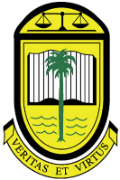
Accounting, also known as accountancy, is the measurement, processing, and communication of financial and non-financial information about economic entities such as businesses and corporations. Accounting, which has been called the "language of business", measures the results of an organization's economic activities and conveys this information to a variety of stakeholders, including investors, creditors, management, and regulators. Practitioners of accounting are known as accountants. The terms "accounting" and "financial reporting" are often used as synonyms.

An accountant is a practitioner of accounting or accountancy. Accountants who have demonstrated competency through their professional associations' certification exams are certified to use titles such as Chartered Accountant, Chartered Certified Accountant or Certified Public Accountant, or Registered Public Accountant. Such professionals are granted certain responsibilities by statute, such as the ability to certify an organization's financial statements, and may be held liable for professional misconduct. Non-qualified accountants may be employed by a qualified accountant, or may work independently without statutory privileges and obligations.

The American Institute of Certified Public Accountants (AICPA) is the national professional organization of Certified Public Accountants (CPAs) in the United States, with more than 428,000 members in 130 countries. Founded in 1887 as the American Association of Public Accountants (AAPA), the organization sets ethical standards and U.S. auditing standards. It also develops and grades the Uniform CPA Examination. The AICPA maintains offices in New York City; Washington, DC; Durham, NC; and Ewing, NJ.

Certified Public Accountant (CPA) is the title of qualified accountants in numerous countries in the English-speaking world. It is generally equivalent to the title of chartered accountant in other English-speaking countries. In the United States, the CPA is a license to provide accounting services to the public. It is awarded by each of the 50 states for practice in that state. Additionally, all states except Hawaii have passed mobility laws to allow CPAs from other states to practice in their state. State licensing requirements vary, but the minimum standard requirements include passing the Uniform Certified Public Accountant Examination, 150 semester units of college education, and one year of accounting-related experience.

The Chartered Institute of Management Accountants (CIMA) is the global professional management accounting body based out of the UK. CIMA offers training and qualification in management accountancy and related subjects. It is focused on accountants working in the industry and provides ongoing support and training for members.

Chartered accountants were the first accountants to form a professional accounting body, initially established in Scotland in 1854. The Edinburgh Society of Accountants (1854), the Glasgow Institute of Accountants and Actuaries (1854) and the Aberdeen Society of Accountants (1867) were each granted a royal charter almost from their inception. The title is an internationally recognised professional designation; the certified public accountant designation is generally equivalent to it. Women were able to become chartered accountants only following the Sex Disqualification (Removal) Act 1919 after which, in 1920, Mary Harris Smith was recognised by the Institute of Chartered Accountants in England and Wales and became the first woman chartered accountant in the world.

Founded in 1904, the Association of Chartered Certified Accountants(ACCA) is the global professional accounting body offering the Chartered Certified Accountant qualification (ACCA). It has 240,952 members and 541,930 future members worldwide. ACCA's headquarters are in London with principal administrative office in Glasgow. ACCA works through a network of over 110 offices and centres in 51 countries - with 346 Approved Learning Partners (ALP) and more than 7,600 Approved Employers worldwide, who provide employee development.

The South African Institute of Chartered Accountants (SAICA), South Africa’s pre-eminent accountancy body, is widely recognised as one of the world’s leading accounting institutes. The institute provides a wide range of support services to more than 48 000 members and associates who are chartered accountants (CAs(SA)), as well as associate general accountants (AGAs(SA)) and accounting technicians (ATs(SA)).

Beta Alpha Psi (ΒΑΨ) is an international honor society for accounting, finance and information systems students attending universities accredited by the Association to Advance Collegiate Schools of Business or the European Quality Improvement System.
The Hong Kong Institute of Certified Public Accountants is the professional accounting body of Hong Kong.
The Chinese Institute of Certified Public Accountants or CICPA is a professional accounting organization based in Beijing with oversight responsibility for accountants in China.
The National Association of State Boards of Accountancy (NASBA) is an association dedicated to serving the 56 state boards of accountancy. These are the boards that regulate the accountancy profession in the United States of America.
Accountancy in Hong Kong is regulated by the HKICPA under the Professional Accountants Ordinance. The auditing industry for limited companies is regulated under the Companies Ordinance, and other Ordinances such as the Securities and Futures Ordinance, the Listing Rules, etc.

The National Association of Black Accountants, is an American nonprofit professional association that represents the interests of more than 200,000 black professionals in furthering their educational and professional goals in accounting, finance, and related business professions. Student members are served throughout the organization's 200 chapters around the country.

The California Board of Accountancy (CBA), created by statute in 1901, is a semi-autonomous State of California agency under the California Department of Consumer Affairs whose purpose is to protect consumers by ensuring only qualified licensees practice public accountancy in accordance with established professional standards in California.

The Institute of Chartered Accountants of the Caribbean (ICAC) is an association of accounting organizations in the Caribbean region that promotes professionalism and standards of best practice in the region.

Chartered Professional Accountant is the professional designation which united the three Canadian accounting designations that previously existed:
CPA Ireland, formerly the Institute of Certified Public Accountants in Ireland, is one of the main Irish accountancy bodies, with 5,000 members and students.

Joseph Edmund Sterrett was an American accountant, known as one of "accountancy's most active pioneers" and the 11th inductee into the Accounting Hall of Fame in 1953.
The Florida Board of Accountancy (FLBOA) regulates Certified Public Accountants and Certified Public Accounting Firms for the State of Florida. The FLBOA is created in Florida Statutes Chapter 473 and is administered by the Florida Department of Business and Professional Regulation (DBPR). Florida Statutes Chapter 473 permits the FLBOA to establish rules that are codified in the Florida Administrative Code (FAC) in sections 61H1-19 through 61H1-39.










